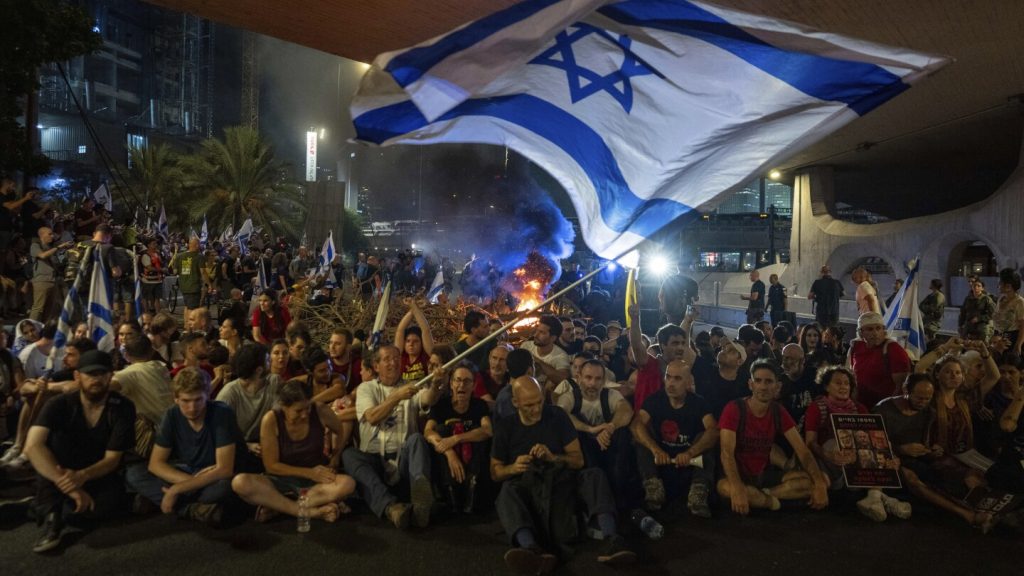Israelis are mourning and protesting after the military confirmed that six hostages were killed by their captors in Gaza as Israeli troops closed in on their location. This incident has sparked massive protests and a general strike, putting immense pressure on Israeli Prime Minister Benjamin Netanyahu. Many blame Netanyahu for the increasing number of hostage deaths and are calling for a cease-fire agreement to free the remaining 100 captives. The demonstrations on Sunday were the largest support for a hostage deal since the start of the war nearly 11 months ago.
Critics have accused Netanyahu of prioritizing his political survival over the hostages’ fate, as his rule relies on support from ultranationalist parties that oppose any deal that ends the war. Netanyahu faces pressure from governing partners, top security officials, and the U.S. to reach a cease-fire agreement, but a deal remains elusive. The prime minister blames Hamas for the lack of a deal, and his ongoing trial on corruption charges adds another layer of complexity to the situation.
Despite the mounting pressure, Netanyahu insists that the military operation in Gaza is the best way to free the hostages and wants any deal to keep Israeli troops in certain areas of Gaza. However, Hamas rejects these demands, leading to clashes within Netanyahu’s own government. Internationally, Israel has faced increasing isolation, with U.S. President Joe Biden criticizing Netanyahu’s handling of the situation. The public outcry in Israel reflects growing frustration with Netanyahu’s leadership and his approach to negotiations with Hamas.
The largest demonstration in Israel since before the war occurred on Sunday, with hundreds of thousands of people calling for a deal to free the hostages. While the public outcry has put pressure on Netanyahu, there are limits to how much influence these protests can have on his decisions. Netanyahu’s supporters believe that relenting in negotiations now would signal weakness to Hamas. The political divisions within Israel were evident during Monday’s strike, showing that the protests are mostly driven by liberal, secular Israelis who have long opposed Netanyahu’s leadership.
Relatives of the hostages killed in Gaza are hopeful that the protests may force progress on a deal to free the remaining captives. While the demonstrations and strikes have drawn attention to the issue, it remains to be seen if they will lead to any significant changes in Netanyahu’s approach to the conflict. Without sustained protests and broader societal support, it is unlikely that Netanyahu will feel enough pressure to alter his demands in negotiations. The families of the hostages killed in Gaza continue to hope that their deaths will bring about progress in resolving the situation.


